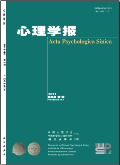心理学报2024,Vol.56Issue(2):161-178,中插1-中插9,27.DOI:10.3724/SP.J.1041.2024.00161
中西方文化差异对虚拟人道德责任判断的影响
The influence of cultural differences between China and the West on moral responsibility judgments of virtual humans
摘要
Abstract
Virtual humans are digital characters created in computer graphics software that take a first-person view of the world and have a social media presence.Compared with real humans,however,are people likely to attribute moral responsibility differently to virtual humans when they do something morally wrong?This important empirical question remains unanswered.Therefore,we addressed this query using Mental Perception Theory.We did so through exploring the influence and mechanism of cultural differences between China and the West on individuals'moral responsibility judgments of virtual humans versus real humans.Findings revealed that,when virtual humans engaged in immoral behaviors—irrespective of whether real humans or artificial intelligence(AI)controlled them—people in China(vs.the West)attributed more moral responsibility to virtual humans but equal moral responsibility to real humans.Perceived mental capacity,especially perceived experience,mediated the interaction effect of culture.Furthermore,compared to Westerners,Chinese people were more likely to punish virtual(vs.real)humans,such as by no longer following their social accounts. Five experiments revealed the foregoing findings.Study 1a and 1b used a 2(blogger:human vs.virtual)×2(culture:Chinese vs.Western)between-subjects design.Two hundred Chinese and 200 American Caucasian participants were recruited in Study 1a.They first read the profile of a virtual/human blogger,Rico,on Weibo(i.e.,China)/Twitter(i.e.,America).Next,they were told that Rico had exposed the private behavior of a netizen,which made that individual suffer from cyber violence.After that,participants rated the moral responsibility of Rico with two items.Consistent with our prediction,there was a significant interaction effect between the Chinese/Western culture and the virtual/human blogger on moral responsibility judgments.Specifically,Chinese(vs.Western)people attributed more moral responsibility to the virtual blogger,but there was no significant difference in moral responsibility judgments toward the human blogger.In Study 1b,we recruited 200 Chinese and 199 British Caucasian participants online.We utilized a similar study design and manipulations to those employed in Study 1a.Study 1b replicated the results of Study 1 with a new scenario(i.e.,tax evasion)and new methods of measuring moral responsibility judgments. Study 1c used a 3(blogger:human s.virtual-human vs.virtual-AI)×2(culture:Chinese vs.Western)between-subjects design.Three hundred Chinese and 300 British Caucasian participants were recruited online.The results showed that Chinese(vs.British)people attributed greater human-like moral responsibility to a virtual human controlled by real humans as well as by artificial intelligence. Study 2 used the same study design as employed in 1b.Two hundred Chinese and 199 American Caucasian participants were recruited online.They read the same profile of the virtual/human blogger Rico and his immoral behavior(i.e.,tax evasion).Then,participants rated moral responsibility judgments and mental capacity of Rico.Results revealed the mediating role of perceived mental capacity(i.e.,experience,not agency)on the cultural difference of moral responsibility judgments and ruled out two possible alternative explanations. Study 3 used a 2(culture:Chinese vs.Western)between-subjects design.One hundred Chinese participants and 101 American Caucasian participants were recruited online.This study utilized another scenario(i.e.,plagiarism)and replicated the results of the four previous studies.Furthermore,we showed the downstream effect that Chinese(vs.American)people believed that the virtual human should be punished more(i.e.,fining,suspending the account,and no longer following the account). In summary,based on Mental Perception Theory,this paper provided evidence for the cultural differences between Chinese people and Westerners on moral responsibility judgments of virtual humans.Perceived mental capacity(i.e.,experience,not agency)mediated this interaction effect.In addition,we revealed the downstream results of moral punishment and contributed to literature on cultural differences and the theory about moral judgments on non-human entities.关键词
虚拟人/道德责任/文化差异/心智能力Key words
virtual humans/moral responsibility/cultural differences/mental capacity分类
社会科学引用本文复制引用
闫霄,莫田甜,周欣悦..中西方文化差异对虚拟人道德责任判断的影响[J].心理学报,2024,56(2):161-178,中插1-中插9,27.基金项目
国家自然科学基金(72332006 ()
71925005) ()
浙江省哲学社会科学领军人才培育专项课题(21YJRC01ZD). (21YJRC01ZD)

